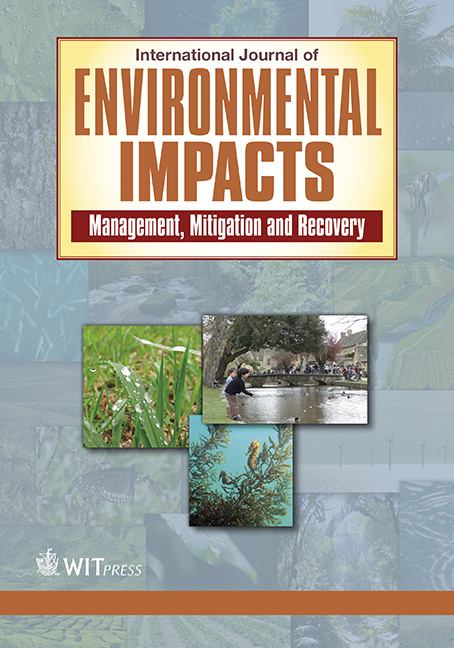Introductory approach to eco-hydrological urbanism: the adaptive reuse of PEMEX former refinery in Reynosa, Mexico
Price
Free (open access)
Volume
Volume 4 (2021), Issue 1
Pages
12
Page Range
1 - 13
Paper DOI
10.2495/EI-V4-N1-1-13
Copyright
WIT Press
Author(s)
Jose Antonio Herrera & Angela Lombardi
Abstract
PEMEX Urban Park is an urban regeneration project focused on the remediation and reclamation of PEMEX’s brownfield and the adjacent natural lagoon ‘Laguna La Escondida’ located in the city of Rey- nosa, Tamaulipas, Mexico. The 65-hectare brownfield is strategically located within the urban center, one of the causes of high levels of air and water pollutants in the city. Historically, the presence of the oil refinery generated dystopic neighbourhoods, some with no access to public spaces, others with inadequate conditions for any type of sustainable community engagement. The natural lagoon, the ‘Laguna La Escondida’, is a 152-hectare body of water, contaminated by toxic metals and chemicals produced by the refinery and the city’s uncontrolled rapid growth. Although contaminated, the lagoon is an essential resource for many local floras and migrating species of fauna. This study includes a thorough analysis of comparable precedents of industrial heritage sites, their associated values and strategies of transformation of polluted landscapes, demonstrating the needs of a broader urban-hydro-ecological approach, emerging from the desire to revive and reintegrate nature into the city. Site analysis and case studies also highlight the important role of culture, of the history embedded in the place, as well as the communities interlinked with the oil refinery. The project, implementing the transformation of PEMEX oil refinery into an urban park, will keep the refinery infrastructure untouched as a memory of the past, acting as a catalyst for eco-socio-cultural activities, providing the community with a place to reconnect as a civic society. The proposal enhances the inherent values of the site, such as history, culture and na- ture. While purification of water is the focus of this new urban-hydro-ecological proposal, the research suggests alternative remediation strategies that will reverse the damage without compromising future generations’ wellbeing. Phytoremediation and rhizo-filtration strategies are analysed as a technique to clean the toxins and heavy metals from the contaminated soil and water. The bioremediation of the lagoon would increase water-quality and reinstate the biodiversity. PEMEX Urban Park envisions an urban eco-hydrological future of the area and re-imagine it as a social condenser in response to capital- ism as a form of urbanization.
Keywords
Industrial adaptive reuse, Water heritage, Eco-hydrological urbanism, Environmental remediation and reclamation, Degraded landscapes, PEMEX Urban Park, Ecology.




